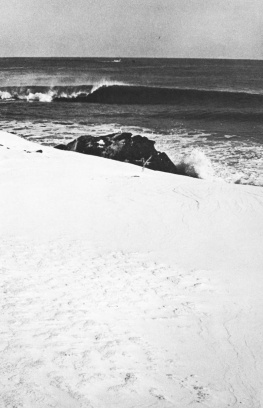May Sarton - Plant Dreaming Deep
Here you can read online May Sarton - Plant Dreaming Deep full text of the book (entire story) in english for free. Download pdf and epub, get meaning, cover and reviews about this ebook. year: 1996, publisher: W. W. Norton & Company, genre: Non-fiction. Description of the work, (preface) as well as reviews are available. Best literature library LitArk.com created for fans of good reading and offers a wide selection of genres:
Romance novel
Science fiction
Adventure
Detective
Science
History
Home and family
Prose
Art
Politics
Computer
Non-fiction
Religion
Business
Children
Humor
Choose a favorite category and find really read worthwhile books. Enjoy immersion in the world of imagination, feel the emotions of the characters or learn something new for yourself, make an fascinating discovery.
- Book:Plant Dreaming Deep
- Author:
- Publisher:W. W. Norton & Company
- Genre:
- Year:1996
- Rating:4 / 5
- Favourites:Add to favourites
- Your mark:
- 80
- 1
- 2
- 3
- 4
- 5
Plant Dreaming Deep: summary, description and annotation
We offer to read an annotation, description, summary or preface (depends on what the author of the book "Plant Dreaming Deep" wrote himself). If you haven't found the necessary information about the book — write in the comments, we will try to find it.
May Sarton describes living at her eighteenth-century house in Nelson, New Hampshirehow she acquired it, how it and the garden became part of her.
Plant Dreaming Deep — read online for free the complete book (whole text) full work
Below is the text of the book, divided by pages. System saving the place of the last page read, allows you to conveniently read the book "Plant Dreaming Deep" online for free, without having to search again every time where you left off. Put a bookmark, and you can go to the page where you finished reading at any time.
Font size:
Interval:
Bookmark:
Plant Dreaming Deep
May Sarton

F OR JUDY , who believed in the adventure from the start
CONTENTS
Happy the man who can long roaming reap,
Like old Ulysses when he shaped his course
Homeward at last toward the native source,
Seasoned and stretched to plant his dreaming deep.
M AY S ARTON , after Du Bellay
PROLOGUE
The Ancestor Comes Home
I HAD LIVED MY WAY into all this house is and holds for me for eight years before I brought the ancestor home. As I stood on a stool and hammered in a hook strong enough to support the plain, heavy oak frame and the portrait itself, I knew I was performing a symbolic act, and this is the way it has been from the beginning, so that everything I do here reverberates, and if, out of fatigue or not paying attention, I strike a false note, it hurts the house and the mystique by which I live. But now, as I lifted the frame and set Duvet de la Tour in his place, it was on a note of triumph, as if a piece of music where many themes have been woven together was just coming to a satisfying close.
Well, old boy, here we are!
He had been a long time coming through the centuries and across the ocean from Normandy; I had been a long time growing up in Europe and America. Now fifty-four years old and the last of my family, I stood on the yellow floor of the big room and looked up at this presence from the eighteenth century: red coat, curled white wig, and shrewd Norman face. Just above him to the left is his crest, the tower of his name, de la Tour. I have always been amused by his name, such a romantic name for such a commonsensical old boy. It too has its reverberations. There is a charm in the contrast between Duvet, which means down as in swans-down, and that stubby, firm little tower. The name suggests gentleness and strength; I savor it, and think it suits this house, which has been as comforting as swans-down, a soft nest in time of trouble, and has been also a strong tower, a defense against the world.
The portrait hangs over a Flemish chest of drawers such as might have stood in his own manor house in Noordpeene, and he looks perfectly at home, so much so that after that first day I was hardly aware of his presence. He might always have been here, looking down on me with a shade of amusement, and reminding me that if my head is in the clouds I had better be sure my feet are firmly planted on the earth.
It amuses me, too, to realize that he died so far away in about the year this house was being built in the village of Nelson, New Hampshire. By 1803 Duvet de la Tour was ending a very long life. Born in 1700, his greatest ambition must have been to live, as he did, through the eighteenth century and into the dawn of the nineteenth, and so achieve fame as the man of three centuries. That epithet is all I know about him, except that when asked how he managed to live so long he answered, Half a pint of applejack with half a loaf of bread for my breakfast each morning. (I plan to embark on this regime myself after my ninetieth year.)
There are no facts to go by, but his life is clearly written in his shrewd, humorous, reasonable face. Of course he would be horrified by the ragged New Hampshire landscape outside, the excrescences of granite that lie like huge beasts in my untilled fields, the scrubby second growth of my woods which, since they were lumbered off years ago, serve only as shelter for deer, woodcock, raccoons, and foxes. Nor would he approve of my garden of English herbaceous borders, a disorderly tangle compared to the stiff parterres he must have laid out at Noordpeene. But he would approve of the weathered barn, full, now late in August, of new-mown hay, even though that hay is not for my cows but for those of the neighbors who cut it for me. He would approve of the character of the people who have lived here in Nelson since the late 1700s, for they too have had to be shrewd, stubborn, streaked with humor and pride, in order to surviveand some of them would not deny the validity of his receipt for a long life!
My parents always spoke of Duvet de la Tour as the ancestor, as if there had been no others, because he is the only one of whom a portrait exists. The ancestor he may be, but there is an English forebear whose disembodied presence I sometimes evoke, for I do have the story of his life, a charming little book published in London in 1805. John Elwes was an almost exact contemporary of Duvet de la Tours, though he did not live so long, and for a very good reason. He was a miser, even a renowned one, for legend has it that he starved himself to death. At the same time this curious man was sometimes extravagantly generous, as on one occasion when he paid out thousands of pounds to release a friend from bondage and make it possible for him to marry. He was a true English eccentric, at the opposite pole from the French man of reason, and I find him most endearing. Let his biographer testify. Edward Topham says of him:
He had the most gallant disregard of his own person, and all care about himself, I ever witnessed in man. The instances in younger life, in the most imminent personal hazard, are innumerable; but when age had despoiled him of his activity, and might have rendered care and attention about himself natural, he knew not what they were: he wished no one to assist himHe was as young as everhe could walkhe could rideand he could danceand he hoped he should not give trouble, even when he was old.
He was at that time seventy-five.
As an illustration of this, an anecdote, however trivial, may be pardoned. He was at this time seventy-three, and he would walk out a-shooting with me, to see whether a pointer I at that time valued much was as good a dog as some he had had in the time of Sir Harvey. After walking for some hours, much unfatigued, he determined against the dog, but with all due ceremony. A gentleman who was out with us, and who was a very indifferent shot, by firing at random, lodged two pellets in the cheek of Mr. Elwes, who stood by me at the time. The blood appeared, and the shot certainly gave him pain; but when the gentleman came to make his apology and profess his sorrowMy dear sir, said the old man, I give you joy on your improvementI knew you would hit something by and by.
In this part of his character, nothing could be more pleasant than was Mr. Elwes; it was the pecuniary part which ruined, as the Dramatist would say, the stage effect of the whole thing.
It is curious to remark how he contrived to mingle small attempts at saving with objects of the most unbounded dissipation. After sitting up a whole night at play for thousands, with the most fashionable and profligate men of the time, amidst splendid rooms, gilt sofas, wax-lights, and waiters attendant upon his call, he would walk out about four in the morning, not toward home, but into Smithfield to meet his own cattle, which were coming to market from Thaydon Hall, a farm of his in Essex. There would this same man, forgetful of the scenes he had just left, stand in the cold or rain, bartering with a carcass-butcher for a shilling!
Later on, John Elwes spent twelve years in the House of Commons. It is to his honor, his biographer tells me, that in every part of his conduct, and in every vote he gave, he proved himself to be what he truly was, an independent country gentleman.
But of course what makes John Elwes haunting is that strange anxiety and continued irritation about his money, the insanity of saving, as Edward Topham puts it. I recognize well the anxiety mentioned here. The only time that I, this remote descendant, made any real money in that form of gambling called writing for a living, I felt compelled to give it all away, or spent it foolishly on machines that were supposed to save time but gave me endless troublean electric typewriter that went on buzzing in a nerve-racking way when I stopped to think, a primitive washing machine that inundated the bathroom floor and turned the simple matter of washing clothes into an ordeal. For me, the irritation of having money has always ended in the insanity of
Next pageFont size:
Interval:
Bookmark:
Similar books «Plant Dreaming Deep»
Look at similar books to Plant Dreaming Deep. We have selected literature similar in name and meaning in the hope of providing readers with more options to find new, interesting, not yet read works.
Discussion, reviews of the book Plant Dreaming Deep and just readers' own opinions. Leave your comments, write what you think about the work, its meaning or the main characters. Specify what exactly you liked and what you didn't like, and why you think so.













